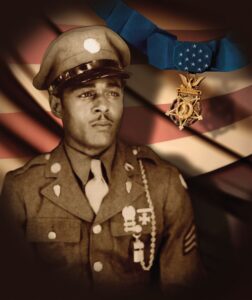From Deployment to Employment: How to Adjust to a Civilian Work Environment
Transitioning from military service to a rewarding career can feel like a daunting undertaking. The work environment and requirements are usually pretty different. What made you successful in the military may not work as well or could even be counterproductive in civilian life.
Many veterans have trouble coping with this adjustment for several reasons:
- The lower stakes lead to boredom.
- The lack of straightforward rules and missions can cause confusion and anxiety.
- Survival behaviors learned during combat, like a flight or fight response, are counter-productive in a work environment.
- Stress and painful memories from deployment can make it difficult to concentrate and remember important information.
- Military skills don’t always translate to a new work environment.
But the structure and discipline you mastered during your military service can also help you succeed in a civilian work environment. Here are a few things to remember:
Focus on your health.
- See a doctor when necessary and only take medications as prescribed.
- Stay away from unhealthy foods (high fat, high sugar).
- Don’t use non-prescribed drugs or drink alcohol excessively.
- Keep a routine—get enough sleep, exercise regularly, eat at the same time each day.
Learn and practice communication skills.
- Maintain polite and friendly communication with co-workers
- Ask for help about talking about deployment with colleagues
- Learn the appropriate ways to handle conflict and criticism, taking into account the culture of your workplace.
Practice organization
- Keep you workspace neat
- Make task lists
- If you have trouble staying focused, write your thoughts in a journal or notebook.
Create your own structure
- Assess your values and make a list.
- Determine the ways your job fits with your values.
- To identify your values, ask yourself questions like:
- What kind of an employee do I want to be? Hard-working? Dependable? A trustworthy officer?
- What parts of work are important to me? Using and building my skills? Fixing problems? Leading a team of people?
- What do I like about my current job? The way people treat each other? The feeling of accomplishment? Good benefits?
- How does this job fit with serving my country?
- Set long-term goals, like an ideal future position or promotion, and then set short-term goals that will help you achieve them.
- Stay current on training and the technology used in your field.
If you are looking for some training, check out Purple Heart’s Veterans Vocational Technical Institute.
If you want to go back to school and complete an undergraduate degree, learn about Purple Heart scholarships.
For career counseling or other services, find a National Service Officer near you.
Resources:
TurboTAP (Transition Assistance Program)
Veterans’ Employment and Training Services
Military.com Veteran Employment Center
The Honor of a Warrior – Staff Sgt. Edward Allen Carter, Jr.
Edward Allen Carter, Jr.
1916 – 1963
As Black History Month comes to an end, the Purple Heart Foundation honors the exemplary heroism, unmatched determination and commendable bravery of a young African American soldier. His actions were profound for a soldier of any race, religion, gender or creed but to happen during a time of segregation and discrimination, they are especially praiseworthy.
Lets begin at the beginning….Edward Allen Carter, Jr. was born on May 26, 1916, in Los Angeles California, but was raised in Shanghai, China. Carter knew he was destined to join the military from a young age. He attended military grade-school in Shanghai and studied languages until he became fluent in Hindi (his mother’s native tongue), Mandarin (the language of Shanghai), as well as English and German which he would later use in his military career. He began that career at the young age of 15, enlisting in the Chinese Nationalist Army. He rose to the rank of lieutenant before it was uncovered that he was underage and was discharged.
Once he turned 18, Carter attempted to join the U.S. Army but was not accepted due to discrimination. So Carter remained in Europe in the late 1930s, fighting for the Loyalists in the Spanish Civil War. He fought as a Corporal in the Lincoln Brigade until they were forced to flee to Paris in 1938. Upon his return to the United States in 1941, Carter once again attempted to join the U.S. Army and was finally accepted. He was quickly promoted to staff sergeant because of his extensive military experience.
During training in the segregated state of Georgia, Carter witnessed violence and discrimination upon African American soldiers. Many of whom were dishonorably discharged when they fought back. In order to remain in the military, Carter accepted multiple demotions in an era when African Americans were rarely allowed to be officers or even participate in combat. Racism proved to be a hindrance in Carter’s journey to follow his destiny. He volunteered to go into combat but was denied because at the time, African Americans were considered unsuitable for battle.
In 1945 however, replacements were desperately needed, so Carter once again gave up his staff sergeant stripes to volunteer as a Private and was assigned to the 56th Armored Infantry Battalion of the 12th Armored Division. Company commander, Captain Floyd Vanderhoff, recognized Carter for his experience and leadership by restoring his staff sergeant stripes and making him an infantry squad leader.
While fighting with the 12th Armored, Carter became a member of General Patton’s “Mystery Division”. He served as Patton’s personal bodyguard in the push into Germany where his actions in battle earned him a recommendation for the Medal of Honor, the highest award for valor, on March 23, 1945. Carter received the Combat Action Ribbon, the Purple Heart for the wounds he sustained in action, but due to his race he was awarded the Distinguished Service Cross, the country’s second highest military honor, instead of the Medal of Honor.
After the war, Carter was promoted to sergeant first class, but his enlistment was near expiration. During this time the Red Scare was in full effect, and therefore Carter’s request for re-enlistment had been denied due to fear that he may have communist ties from his exposure in China. He received an honorable discharge in October 1949 and lived out the remainder of his life as a family man until he passed away on January 30, 1963 at the age of 46.
Three decades later, a commission was assigned to identify unrecognized African-American heroes from World War II. Ten men were cited to receive the Medal of Honor. Edward Allen Carter Jr. was identified and recommended for honors for his actions fifty-two years after voluntarily leading a three-man group across an open battlefield. Edward Allen Carter, III received the Medal of Honor on behalf of his grandfather from President Bill Clinton on January 13, 1997. His citation read…
“For extraordinary heroism in action on 23 March 1945, near Speyer, Germany. When the tank on which he was riding received heavy bazooka and small arms fire, Sergeant Carter voluntarily attempted to lead a three-man group across an open field. Within a short time, two of his men were killed and the third seriously wounded. Continuing alone, he was wounded five times and finally forced to take cover. As eight enemy riflemen attempted to capture him, Sergeant Carter killed six of them and captured the remaining two. He then crossed the field using as a shield his two prisoners from which he obtained valuable information concerning the disposition of enemy troops, in their native tongue. Staff Sergeant Carter’s extraordinary heroism was an inspiration to the officers and men of the Seventh Army Infantry Company Number 1 (Provisional) and exemplify the highest traditions of the Armed Forces.”
Against all odds, Edward Allen Catrer, Jr. fought for what was right and followed his destiny. The Purple Heart Foundation Salutes Staff Sgt. Edward Allen Carter, Jr. for service and sacrifice. This Black History Month join us in honoring all service men and women who bravely follow their destiny in the eyes of discrimination and adversity.



